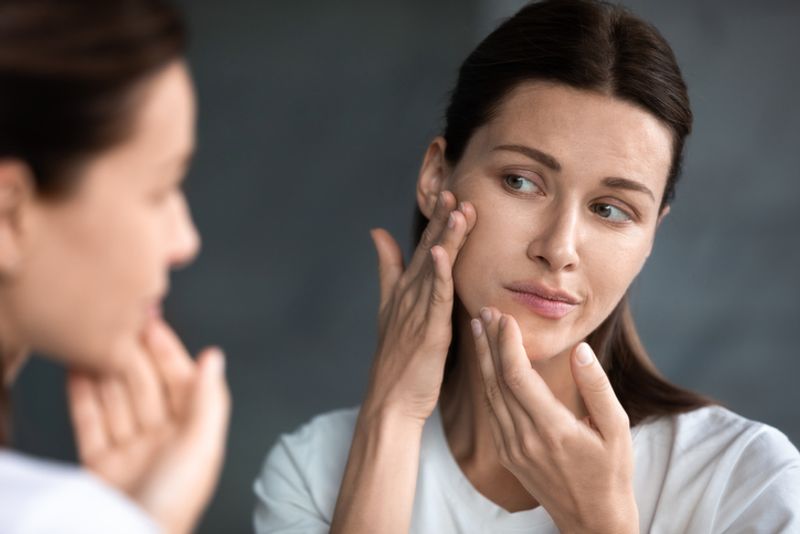
Polycystic ovary syndrome (PCOS) is a condition that can affect women of reproductive age. Women with PCOS experience a hormonal imbalance that can cause irregular, infrequent, or prolonged periods, acne, increased facial and body hair, and sometimes infertility.
How does PCOS impact the body?
When a woman has PCOS, her ovaries produce unusually high levels of androgens. Androgens are often referred to as male sex hormones, but they are present in women as well, though normally in small amounts. The excess production of androgens in women with PCOS creates a hormonal imbalance that interferes with the menstrual cycle because it hinders the growth and release of eggs from the ovaries (ovulation). Sometimes, women with PCOS develop fluid-filled sacs (cysts) on their ovaries. However, not all women with PCOS develop these cysts.
What are the symptoms of PCOS?
The following are the most common symptoms of PCOS:
- Irregular, infrequent periods that can be abnormally heavy
- Increased facial and body hair
- Thinning hair on head or male-pattern baldness
- Severe acne
- Changes in mood
- Weight gain
- Darkening of skin (especially on neck, armpits, and/or groin)
- Excess skin or skin tags (usually on the neck or armpits)
What causes PCOS?
The cause of PCOS is unknown, but heredity seems to play a role, so women who have a close female relative with PCOS are more likely to have PCOS themselves. Excess insulin and excess androgen may also contribute to the hormonal imbalance that causes PCOS.
What possible complications are associated with PCOS?
In some cases, PCOS can cause or contribute to complications such as infertility, type 2 diabetes and/or gestational diabetes, pregnancy-related high blood pressure, premature birth, miscarriage, metabolic syndrome, inflammation of the liver, or uterine bleeding that is out of the ordinary. There are often metabolic consequences associated with PCOS like insulin resistance and obesity, so providers may focus on these areas when treating PCOS.
How is PCOS treated?
Unfortunately, at this point there is no cure for PCOS. Nevertheless, there are ways to manage one’s symptoms and address specific problems associated with PCOS like infertility or excessive hair growth if a woman wishes to do so. From this standpoint, treatment for PCOS usually involves lifestyle changes and certain medications that support ovulation and reduce the detrimental effects of the hormonal imbalance.
What can women with PCOS do to manage their symptoms?
Women with PCOS may notice an improvement in their health when eating a balanced diet and getting regular exercise. For those who are overweight, losing weight may also help lessen symptoms. A health care provider may recommend/prescribe birth control pills to women with PCOS who wish to regulate their menstrual cycles, control excessive hair growth, and reduce hormonal acne. Progestin therapy (such as a progestin “minipill” or an IUD containing progestin) can also help women regulate their periods and protect against endometrial cancer. There are a few different medications that women can take to lower their insulin and promote ovulation, which can be discussed with a health care professional. Finally, electrolysis and laser hair removal are two options for removing unwanted facial hair.
Resources:
Mayo Clinic. (2020, October 3). Polycystic ovary syndrome (PCOS). https://www.mayoclinic.org/diseases-conditions/pcos/symptoms-causes/syc-20353439
Office on Women’s Health. (2019, April 1). Polycystic ovary syndrome. https://www.womenshealth.gov/a-z-topics/polycystic-ovary-syndrome
WebMD. Medically reviewed by Neha Pathak, MD. (2021, September 13). Polycystic ovary syndrome (PCOS). https://www.webmd.com/women/what-is-pcos






































